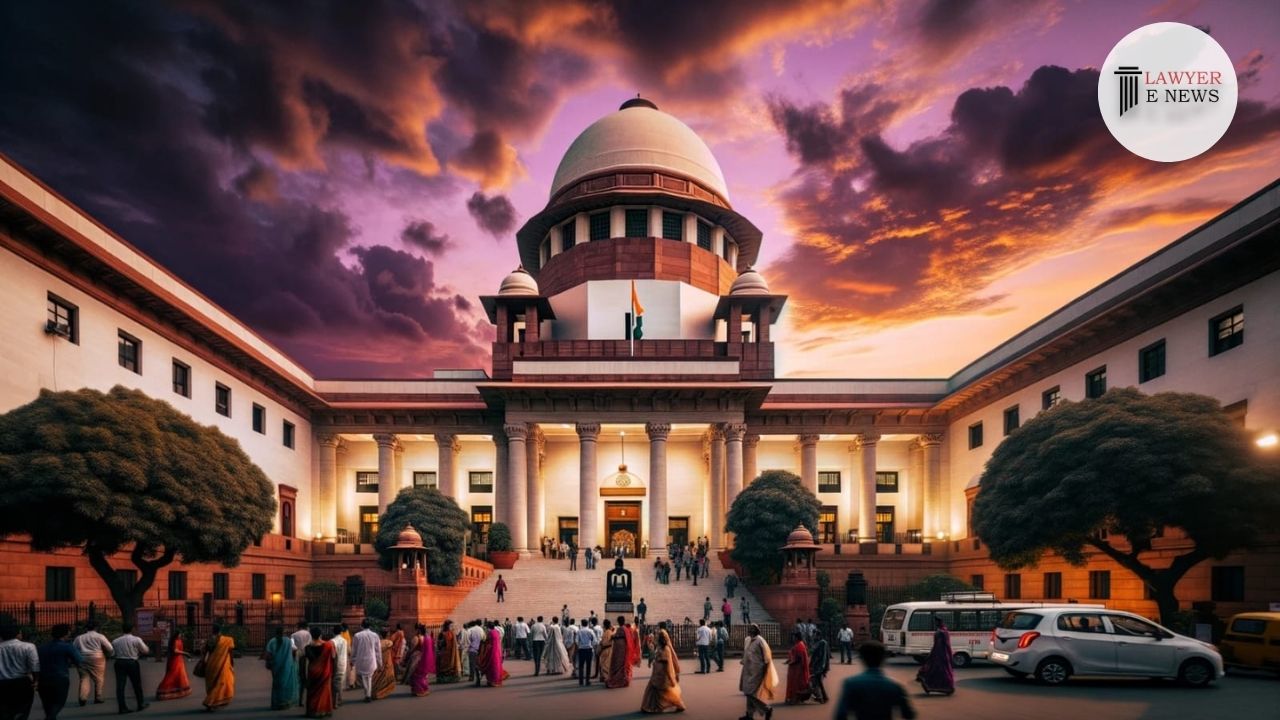-
by sayum
14 February 2026 2:22 PM



High Court's affirmation of life imprisonment for Dharmendra Kumar @ Dhamma under Section 302 IPC sustained by Supreme Court.
The Supreme Court has upheld the conviction of Dharmendra Kumar @ Dhamma for his involvement in a brutal double murder case from 2004, dismissing his appeal against the life imprisonment sentence handed down by both the trial court and the High Court. The bench, comprising Justices Surya Kant and K.V. Viswanathan, emphasized the reliability of eyewitness testimonies and the admissibility of medical evidence and the accused’s confession leading to the discovery of the murder weapon.
On the night of June 20, 2004, Usha Bai was overseeing the construction of a wall in her Jhuggi in Bhopal. During this time, Ahmad and his wife Kanija Bi objected to the construction. This escalated when other accused, including Dharmendra Kumar, arrived and started assaulting Tillu (Devi Singh) and Tularam. Tillu sought refuge in a nearby Jhuggi but was pursued by the assailants. Dharmendra delivered a fatal knife blow to Tillu’s abdomen, while Asgar inflicted another stab wound. The injured were taken to Katju Hospital, but Tillu succumbed to his injuries en route. Tularam died five days later due to severe head injuries inflicted during the attack.
The prosecution's case relied heavily on the testimonies of Usha Bai (P.W.10) and Lallu Vishwakarma (P.W.11). Both witnesses provided a consistent account of the events leading to the deaths of Tillu and Tularam. Usha Bai confirmed that Dharmendra Kumar was among the assailants and detailed the assault on Tillu, despite admitting she knew the other accused by name only.
Dr. C.S. Jain (P.W.13) conducted the post-mortem examination of Tillu, confirming multiple stab wounds and head injuries sufficient to cause death. Dr. Neelam Shrivastava (P.W.15) corroborated the cause of Tularam’s death as a result of severe head injuries.
The Supreme Court found no contradictions in the prosecution's case, which was primarily based on the consistent testimonies of eyewitnesses corroborated by medical evidence. The Court also upheld the admissibility of the appellant's disclosure statement leading to the recovery of the murder weapon. "The evidence of such witnesses has to be evaluated comprehensively and carefully," noted Justice Surya Kant, emphasizing the credibility of the witnesses despite minor inconsistencies.
Justice Surya Kant remarked, "The unfiltered testimony of a rustic witness, even if marred with some minor inconsistencies or discrepancies, cannot debilitate its perseverance." He further stated, "We are satisfied that the statements of P.W.10 and P.W.11 do not suffer from the discrepancy of such a nature that they should be discarded."
The Supreme Court's decision to uphold Dharmendra Kumar's conviction reaffirms the judiciary's stance on the reliability of consistent eyewitness testimonies and the critical role of corroborative medical evidence in criminal cases. This judgment serves as a significant precedent in handling cases involving multiple eyewitness accounts and the necessity of detailed medical corroboration.
Date of Decision: July 8, 2024
Dharmendra Kumar @ Dhamma v. State of Madhya Pradesh
